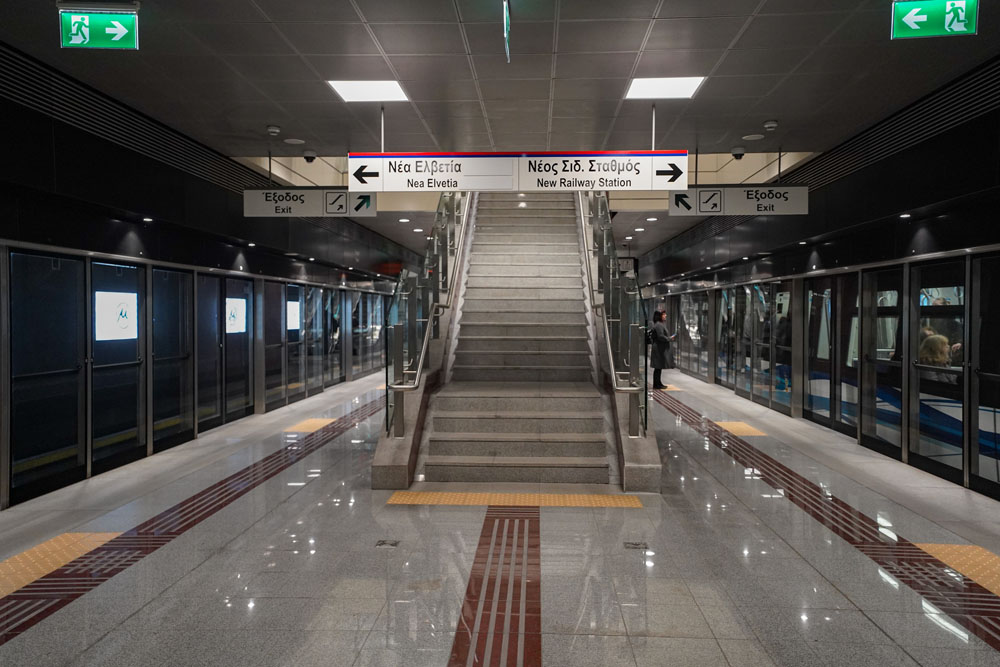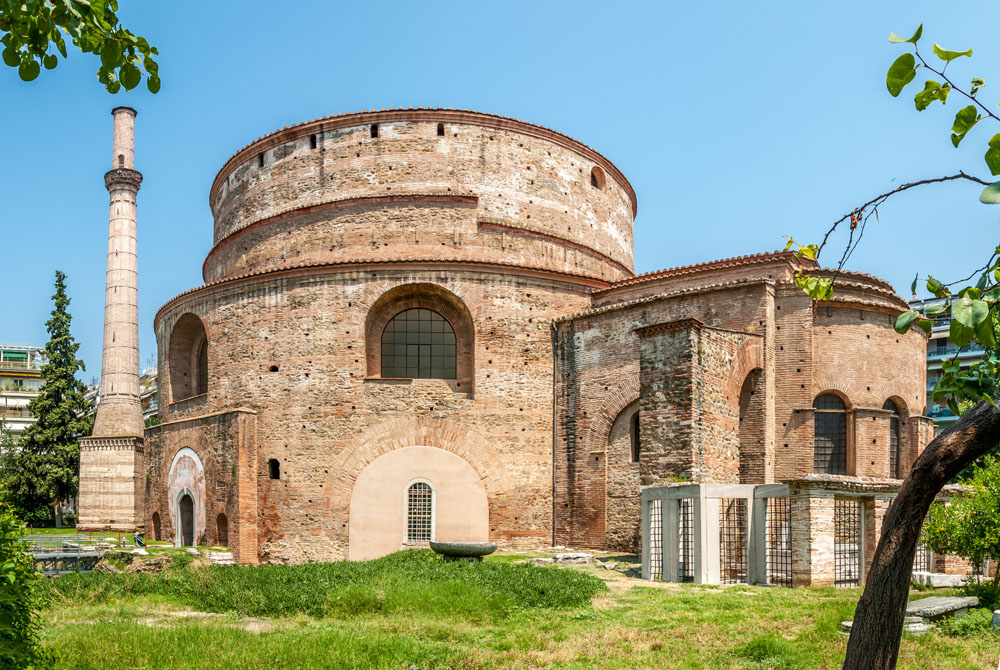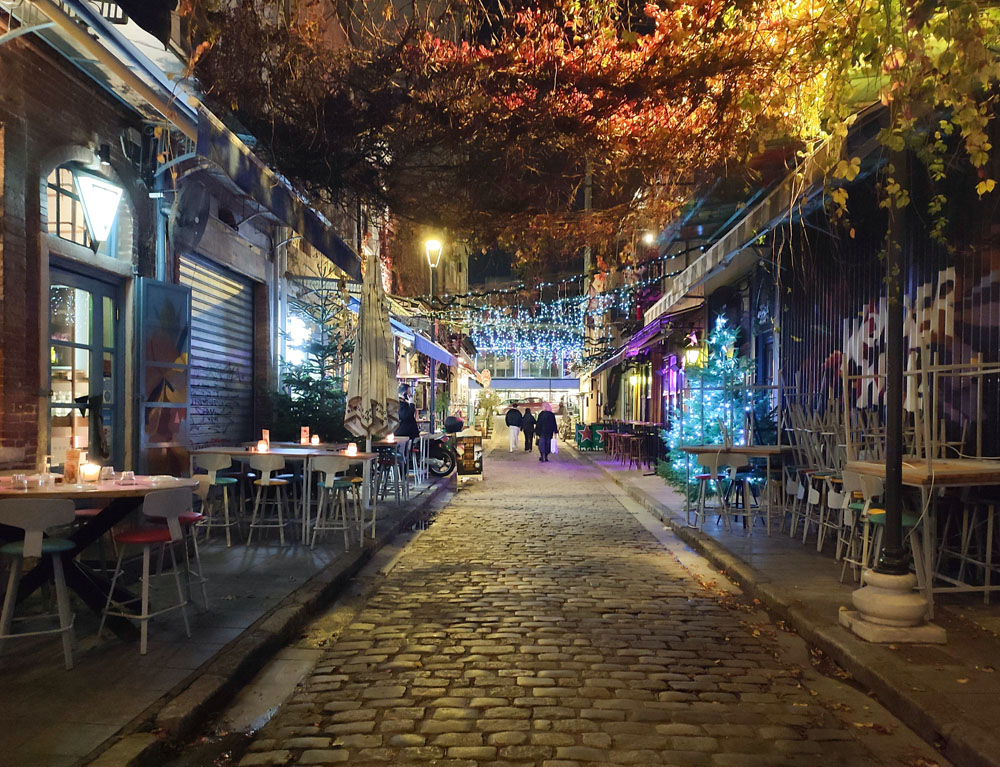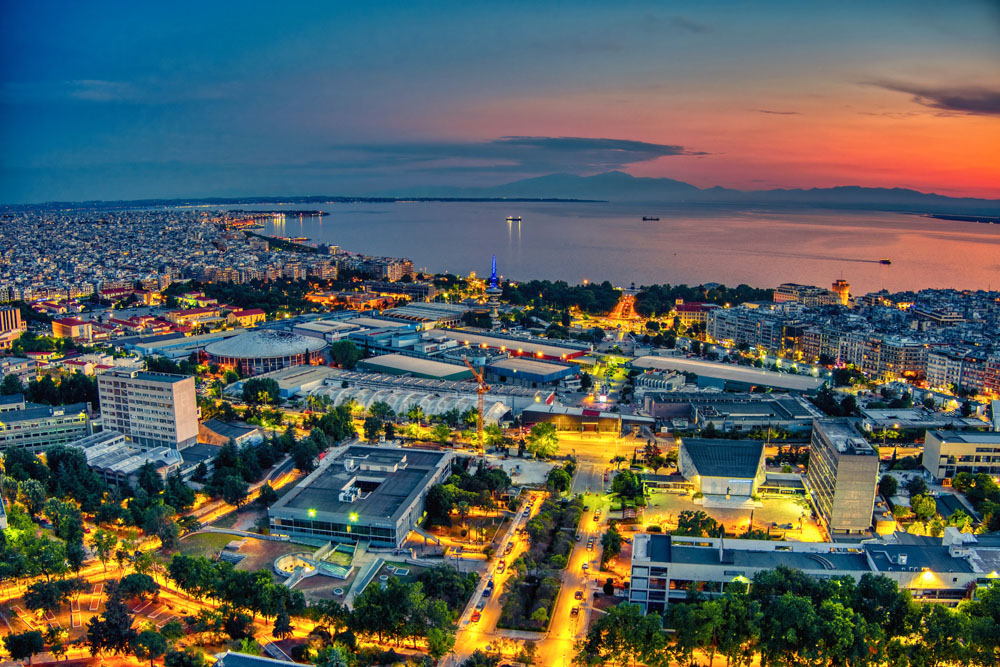
Welcome to Thessaloniki, the vibrant heart of Northern Greece. As the country’s second-largest city, Thessaloniki offers a unique blend of ancient history, dynamic modern life, and a picturesque coastal setting. Whether you’re walking along its lively seafront promenade or exploring its centuries-old monuments, Thessaloniki promises an unforgettable experience.
Situated on the shores of the Thermaic Gulf, Thessaloniki is a gateway to both history and hospitality. Its rich cultural heritage, bustling nightlife, and warm atmosphere make it one of the most fascinating cities in Southeast Europe.

Thessaloniki is located in Northern Greece and serves as the capital of the region of Central Macedonia. The city is well-connected by air through Thessaloniki International Airport “Makedonia” (SKG), offering direct flights from major European cities. It is also accessible by train, bus, and car, making it a convenient destination for travelers from across the Balkans and beyond.
Once in the city, getting around is easy thanks to a network of buses, taxis, and the recently opened Thessaloniki Metro system.

Founded in 315 BC by King Cassander of Macedon and named after his wife Thessalonike, the half-sister of Alexander the Great, the city has been a crossroads of civilizations for over two millennia. During Roman times, Thessaloniki flourished as a major metropolis and an important hub on the Via Egnatia, the road linking Rome to Byzantium.
The city is home to numerous UNESCO World Heritage Sites, including early Christian and Byzantine churches such as the Rotunda, the Church of Hagios Demetrios, and the Church of Hagia Sophia. The Byzantine Walls, the Arch of Galerius, and the Roman Forum also testify to the city’s historical significance.

Thessaloniki is often described as Greece’s cultural capital. The White Tower, the city’s most iconic landmark, offers panoramic views of the waterfront and an engaging museum inside. Aristotelous Square, the central plaza, is lined with cafes and neoclassical buildings, while Ano Poli (Upper Town) charms visitors with its traditional architecture and cobbled streets.
The Archaeological Museum of Thessaloniki and the Museum of Byzantine Culture showcase impressive collections spanning ancient Macedonian artifacts to Byzantine art. Art galleries, theaters, and a thriving local music scene add to the city’s creative spirit.
Every year, Thessaloniki hosts the internationally acclaimed Thessaloniki International Film Festival and Dimitria Festival, bringing together artists, filmmakers, and performers from around the world.
Thessaloniki is a food lover’s paradise. Influenced by Greek, Balkan, and Middle Eastern flavors, the city’s cuisine is rich and diverse. Don’t miss local specialties like Bougatsa (sweet or savory pastry), Soutzouk Loukoum (a traditional sweet), Gyros, and Souvlaki. The Modiano and Kapani markets offer a taste of traditional food culture, with spices, cheeses, olives, and fresh produce.
Seaside taverns serve up fresh seafood dishes, while the city’s stylish cafes and bars offer everything from specialty coffee to creative cocktails.


While its past is deeply rooted in history, Thessaloniki is also a youthful and vibrant city. With over 100,000 university students, it has a dynamic energy that permeates its nightlife, fashion, and street art scenes. Trendy neighborhoods like Ladadika, Valaoritou, and Bit Bazaar are known for their buzzing bars, live music venues, and boutique shops.
The city’s long seaside promenade is ideal for walking, cycling, or simply enjoying the sunset over the Aegean Sea.
Currency: Euro (€)
Language: Greek (English widely spoken in tourist areas)
Climate: Mediterranean – hot, dry summers and mild, wet winters
Best Time to Visit: April–June and September–October